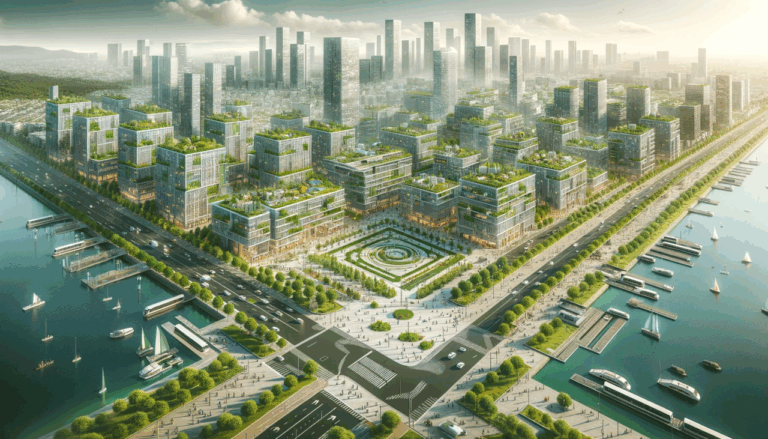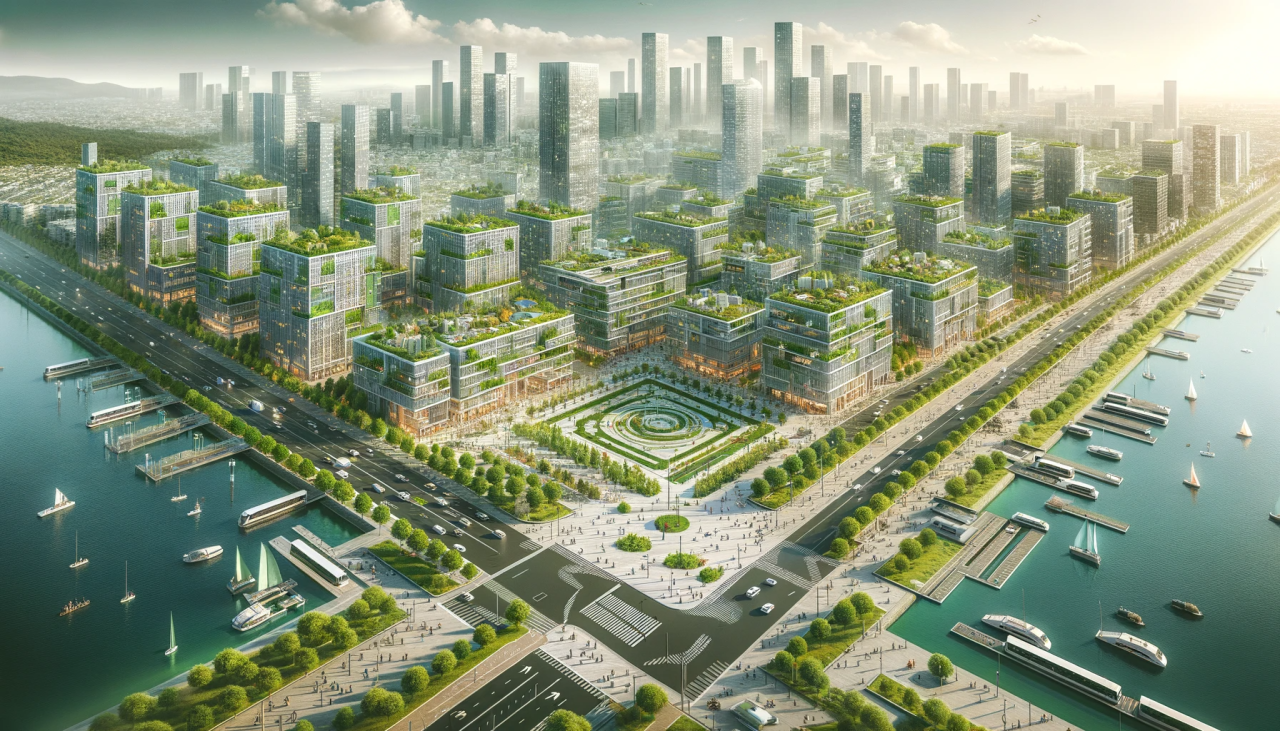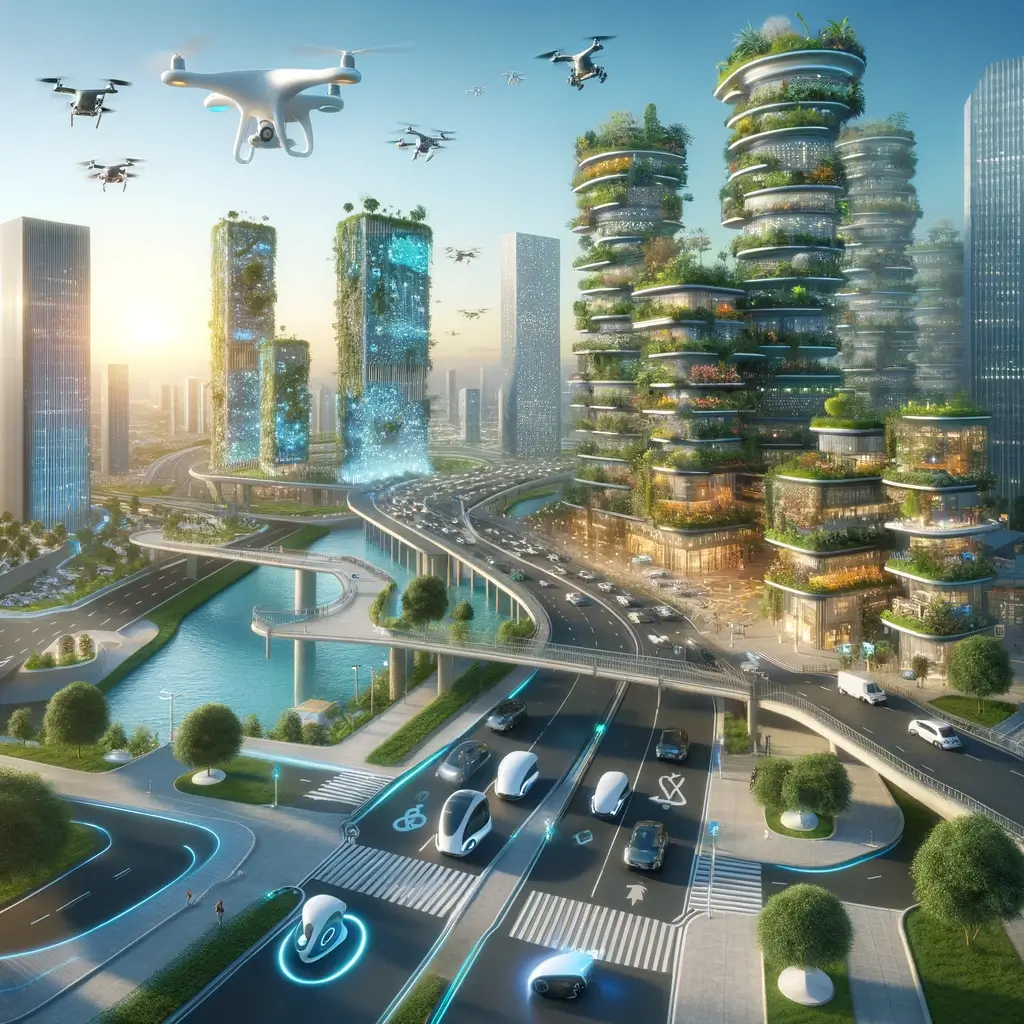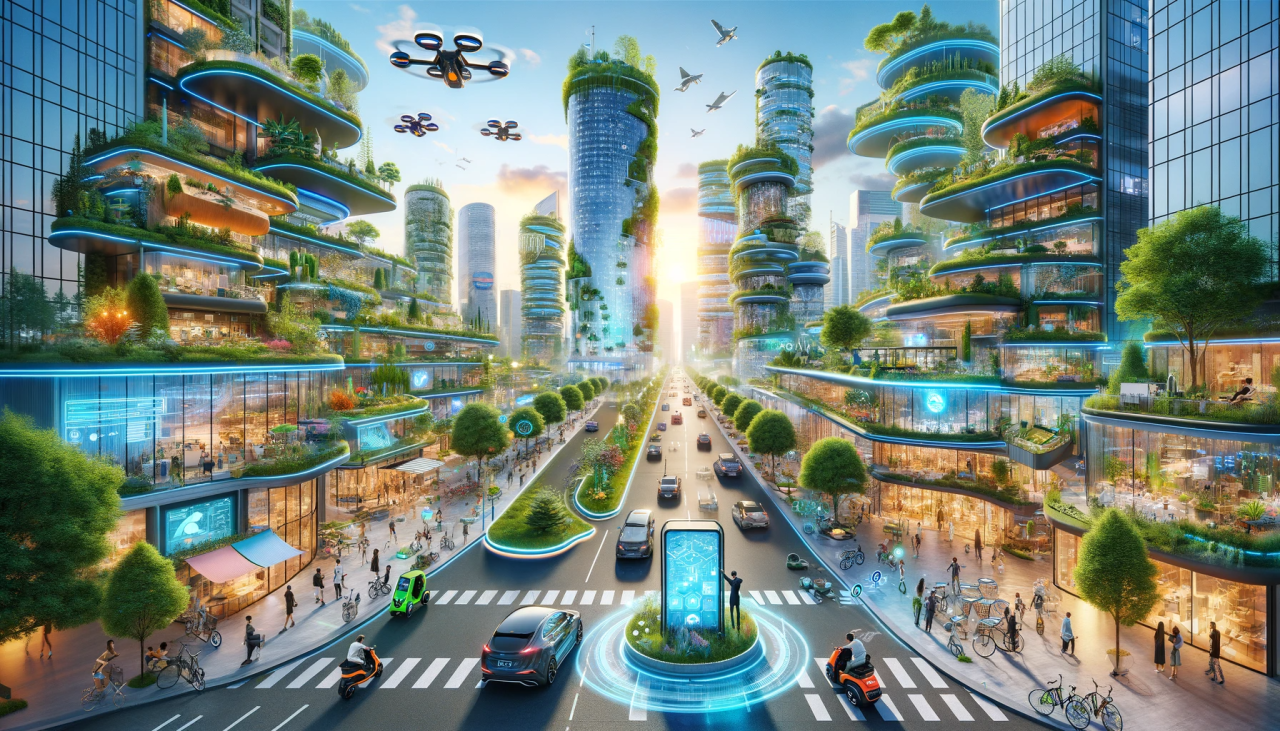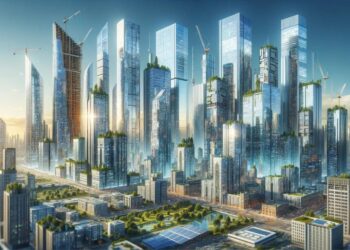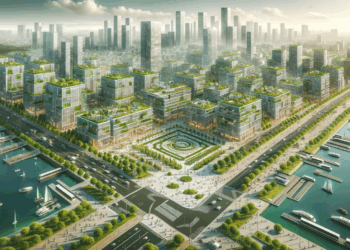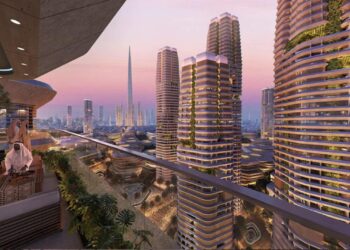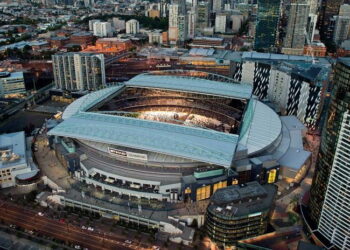Introduction
Urbanization accelerates globally, with 68% of the world’s population projected to reside in cities by 2050. This surge demands radical sustainable design innovations to combat climate change, resource depletion, and social inequity. Future cities must harmonize technology, ecology, and human-centric planning. This article explores transformative innovations redefining urban landscapes—prioritizing resilience, efficiency, and livability.
The Imperative for Sustainable Urban Design
Cities generate 70% of global CO₂ emissions but occupy only 3% of Earth’s land. Rising temperatures, flooding, and air pollution threaten urban survival. Sustainable design transcends aesthetics—it’s a survival strategy integrating:
-
Circular Economies: Minimizing waste via reuse/recycling systems.
-
Climate Resilience: Infrastructure adaptable to extreme weather.
-
Social Equity: Affordable housing and accessible services.
Key Innovations Shaping Future Cities
A. Green Building Technologies
Buildings consume 40% of global energy. Innovations include:
-
Biophilic Design: Integrating living walls, rooftop gardens, and natural light to reduce energy use by 20%. Example: Milan’s Bosco Verticale (Vertical Forest) absorbs 30 tons of CO₂ annually.
-
Self-Healing Concrete: Embedded bacteria seal cracks, slashing maintenance costs.
-
Phase-Change Materials (PCMs): Walls that absorb/emit heat, stabilizing temperatures sans HVAC.
B. Renewable Energy Integration
Fossil fuels power only 40% of future grids:
-
Solar Skin Facades: Customizable PV panels doubling as building exteriors.
-
Kinetic Energy Harvesting: Sidewalks capturing footfall energy (e.g., London’s PaveGen).
-
Microgrids: Community-run solar/wind networks ensuring outage resilience.
C. Smart Water Management
Water scarcity affects 2 billion people. Solutions:
-
AI-Powered Leak Detection: Sensors pinpoint pipe failures in real-time.
-
Greywater Recycling: Treating sink/shower water for irrigation/toilets (saves 50% potable water).
-
Permeable Pavements: Rainwater absorption replenishing aquifers.
D. Urban Green Spaces
Parks and forests counter “heat islands”:
-
Pocket Parks: Transforming vacant lots into micro-forests.
-
Green Corridors: Wildlife pathways enhancing biodiversity (e.g., Singapore’s Park Connector Network).
-
Floating Wetlands: Purifying polluted rivers while creating habitats.
E. Sustainable Transportation Networks
Transport drives 24% of direct CO₂ emissions:
-
EV Charging Roads: Wireless lanes powering vehicles mid-drive (Sweden pilot).
-
15-Minute Cities: Zoning ensuring homes, work, and essentials within a quarter-hour walk/bike ride.
-
Hyperloop & Maglev Trains: 700 mph carbon-neutral transit.
F. Waste-to-Resource Systems
Zero-waste cities leverage:
-
Anaerobic Digesters: Converting food waste to biogas for electricity.
-
3D-Printed Recyclables: Repurposing plastic into construction materials.
-
Smart Bins: AI-sorted recycling with reward incentives.
G. AI and IoT-Driven Optimization
Sensors and data unify urban ecosystems:
-
Traffic Flow Algorithms: Reducing congestion by 30% in pilot cities like Barcelona.
-
Predictive Maintenance: Fixing infrastructure pre-failure.
-
Digital Twins: Virtual city replicas simulating disaster responses.
H. Climate-Adaptive Architecture
Structures evolving with environments:
-
Amphibious Homes: Floating foundations during floods (Netherlands).
-
Dynamic Shading Systems: AI-adjusted blinds cutting cooling needs.
-
Carbon-Absorbing Facades: Coated with algae converting CO₂ to oxygen.
I. Urban Agriculture Revolution
Localizing food production:
-
Vertical Farms: Skyscraper greenhouses yielding 100x traditional farms per acre.
-
Hydroponic Bus Stops: Rooftop gardens at transit points (e.g., Utrecht).
-
Edible Landscaping: Public fruit trees/nut bushes replacing ornamental plants.
J. Circular Material Innovations
Building with sustainability:
-
Mycelium Insulation: Fungus-based materials stronger than concrete.
-
Recycled Steel/Glass: Cutting embodied energy by 75%.
-
Hempcrete: Carbon-negative bricks sequestering CO₂.
Case Studies: Cities Leading the Change
-
Copenhagen, Denmark: Targets carbon neutrality by 2025 via wind energy, cycling highways, and seawater cooling.
-
Singapore: Mandates green roofs, deploys solar-powered “supertrees,” and recycles 98% of wastewater.
-
Curitiba, Brazil: Bus rapid transit (BRT) system moves 2 million daily, reducing car dependency.
Challenges and Future Trajectories
Barriers: High upfront costs, regulatory hurdles, and equity gaps.
Emerging Trends:
-
Blue-Green Infrastructure: Merging water management with greenery.
-
Neural Networks: AI predicting urban growth patterns.
-
Holographic Governance: Citizens co-designing cities via VR.
Conclusion
Sustainable urban design is no longer optional—it’s existential. By fusing nature, tech, and inclusivity, cities can evolve into resilient, thriving ecosystems. Every innovation, from algae-coated towers to AI microgrids, propels us toward a carbon-neutral future where cities heal rather than harm the planet.
Tags: Sustainable Design, Urban Innovation, Green Cities, Smart Cities, Renewable Energy, Eco-Friendly Architecture, Climate Resilience, Urban Planning, Future Cities, Sustainable Technology

